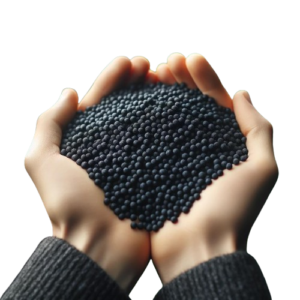
Organic fertilizers have increasingly become a preferred choice for many farmers and gardeners, and for good reasons. They offer numerous advantages over their chemical counterparts, contributing not only to healthier, more sustainable soil and plants but also to a more eco-friendly agricultural practice. In this article, we’ll delve into why organic fertilizers are superior to chemical fertilizers, examining their impact on soil health, plant growth, environmental safety, and long-term agricultural sustainability.
Soil Health and Fertility
1. Nutrient Release: Organic fertilizers are made from natural materials, including compost, manure, and bone meal. These substances decompose in the soil, releasing nutrients gradually. This slow-release mechanism ensures that plants receive a steady supply of nutrients as they grow, which is more in tune with their natural growth requirements. Chemical fertilizers, on the other hand, can provide a quick but short-lived nutrient boost.
2. Soil Structure: Organic matter is crucial for maintaining a healthy soil structure. It helps in retaining soil moisture and air, fostering a conducive environment for root growth and microbial activity. Chemical fertilizers lack this organic matter and can lead to soil compaction and a decrease in soil aeration over time.
3. Microbial Activity: The organic matter in natural fertilizers supports a vibrant ecosystem of microorganisms essential for a healthy soil biome. These microorganisms help in nutrient cycling, improving soil fertility. In contrast, chemical fertilizers can harm these microorganisms and disrupt the natural soil ecology.
Plant Health and Growth
1. Balanced Growth: Organic fertilizers provide a balance of essential nutrients that promote the overall health of the plant. Unlike chemical fertilizers, which can sometimes lead to excessive growth of one part of the plant at the expense of others, organic fertilizers support steady and balanced growth.
2. Disease Resistance: Healthier plants are more resistant to diseases and pests. The nutrients from organic fertilizers strengthen the natural defense mechanisms of plants. On the other hand, the overuse of chemical fertilizers can make plants more prone to diseases.
Environmental Impact
1. Eco-Friendly: One of the most significant advantages of organic fertilizers is their eco-friendliness. They are made from natural materials and do not contain harmful chemicals that can leach into water bodies, causing pollution and harm to aquatic life.
2. Reduces Carbon Footprint: The production and use of chemical fertilizers are energy-intensive and contribute to greenhouse gas emissions. Organic fertilizers, particularly those made from locally-sourced materials, have a much lower carbon footprint.
3. Sustainable Resource Use: Organic fertilizers encourage the recycling of waste materials, such as food scraps and animal manure, turning potential waste into valuable resources.
Long-term Sustainability
1. Soil Fertility Maintenance: In the long run, organic fertilizers help in maintaining and improving soil fertility. This is crucial for sustainable agriculture, ensuring that the land remains productive for future generations.
2. Decreased Chemical Dependency: Relying on chemical fertilizers can create a cycle of dependency, where soils require regular chemical inputs for productivity. Organic fertilizers help break this cycle, leading to more self-sufficient farming practices.
3. Supporting Biodiversity: The use of organic fertilizers supports biodiversity, both above and below the soil. It promotes a variety of soil organisms and can lead to healthier ecosystems surrounding the farming areas.


